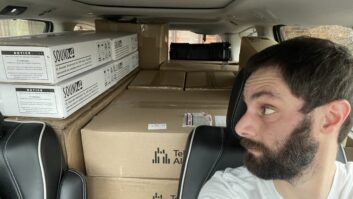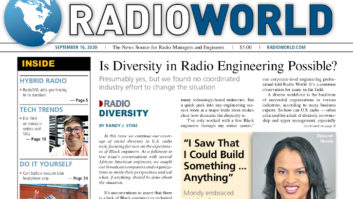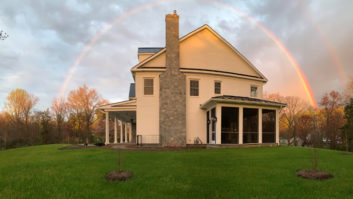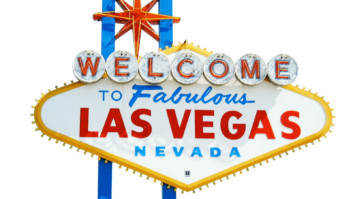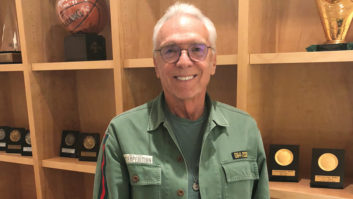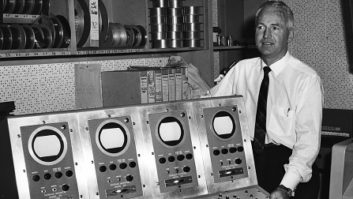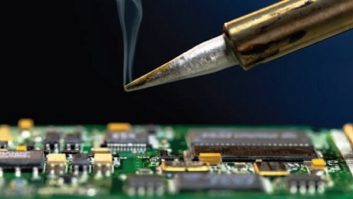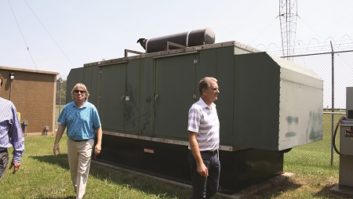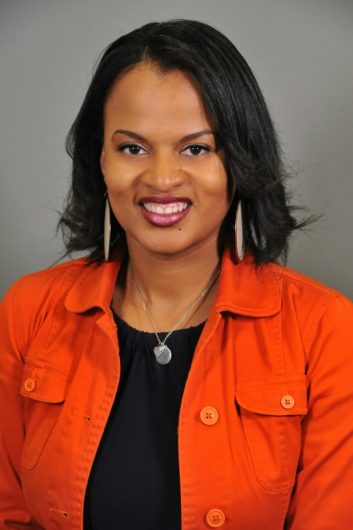
Zipporah Mondy completed the Technology Apprenticeship Program run by the National Association of Broadcasters Leadership Foundation in September of 2018. Her family owns KJIW(FM), which is licensed to Helena, Ark.
“My goal was to understand every aspect of the business so I could be an effective owner whenever my dad passed the baton to me,” she says.
Mondy answered our questions via e-mail about the apprenticeship experience and her experience of being young, Black and female in the field of radio technology:
Radio World: Where did you serve your apprenticeship?
Zipporah Mondy: I did two apprenticeships. I shadowed Ed Czelada, CEO of the Smile FM chain of stations in Michigan, and the consulting engineer for KJIW(FM) in Helena, Ark. I also job-shadowed Alonzo Pendleton at iHeartMedia in Memphis, Tenn.
RW: Describe the experience and what you learned.
Mondy: My experience was an awakening! I grew up in radio and was always around the technology of it, but when I got in the program, the dots connected and the lights came on for me.
We received a crash course on broadcast engineering from top industry professionals. The experience showed me so much about myself because I was not the super-smart math or science whiz with a strong background in electricity. I didn’t see myself as being able to do certain things.
However, Mr. Ed had my brother and I assist him in building radio antennas from scratch, which now sit at the top of my family’s 499-foot radio tower pushing 50,000 watts of power toward Memphis, Tenn. This was a huge deal!
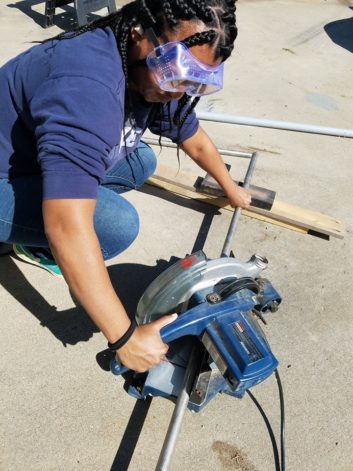
I saw that I could build something … anything. I just needed to understand what I was doing. I realized that I could learn anything if I listened, focused and followed a master. I got to see firsthand the process of building a radio tower, and I had too much fun helping paint the tower before it went up.
I also learned a lot about artificial intelligence in the broadcast field. Our TAP class was assigned the task to research this topic and complete the program by presenting a live webcast on AI in broadcasting from the NAB headquarters in Washington, D.C.
The life of an engineer is so unpredictable. My brother and I loved going to the different tower sites and watching them troubleshoot and solve problems. We even had a random out-of-place chicken walking around the transmitter building one morning.
The program also exposed me to the Society of Broadcast Engineers and the Institute of Electrical and Electronics Engineers. I later had an opportunity to be a founding member of the new SBE Arkansas chapter.
RW: Where did your interest in pursuing a technical career in radio come from?
Mondy: I grew up working in my family’s radio business. When I reached a certain age, I wondered what I would do if something happened to my parents. I realized how much I didn’t know in the business.
I started seeking to learn whatever I could in every area. I always liked the idea of getting more in the engineering part of it, but I spent most of my time helping where I was needed.
When I learned of TAP, I felt like this was my opportunity to dive in radio engineering completely focused. It was so exciting for me because it was the one area I didn’t know very well. I felt like I was starting a new career in the same place.
RW: Could you share some thoughts about why you think broadcast engineering has a low percentage of Black professionals?
Mondy: When I first saw Alonzo Pendleton, my eyes bucked wide. I was so surprised because he was a Black man and so was his assistant, Tony Guy. I had never seen black radio engineers, if I’m honest.
I think there are two main reasons for why there are few Black broadcast engineers: lack of exposure at a young age and the absence of fathers’ influence.
[Read: “Blacks Are Few in U.S. Radio Engineering”]
When I was growing up, my dad was constantly telling me and my siblings to learn computers. He got us books and software and always made sure we had a computer. He also had us hold the light while he would solder something, or would always tell us about pieces of equipment, even if we weren’t interested at the time. He drilled in our minds the idea of entrepreneurship.
This is not an uncommon story. Fathers or father figures play a huge role in exposing their kids to things. I’m not saying that to negate the mothers and grandmothers that do this too, but the absence of fathers really has an impact.
RW: What will it take to change that? Are programs like the NAB’s a positive step?
Mondy: Honestly, the way our culture is today, offering mentorships and apprenticeships would have to be a way of life for industry professionals. It would take master craftsmen (and women) caring enough of the next generation to take a young person under their wing and say, “Let me teach you how to do what I do.” That means real commitment from industry professionals, regardless if they’re a part of a school or program.
Again, I believe exposure is key. Young people have to be exposed to something before they can cultivate a desire for it. If there is no exposure, there is often not much interest.
For example, how many Black hockey players are currently on the NHL rosters? Not too many, since they are not exposed to it growing up.
I think education is a factor — more specifically, I mean developing skills. My dad always told us “learn a skill.” When I listen to the stories of engineers, I hear the skill sets they learned in school and they had the confidence to try certain things and fix broken things.
Schools used to have subjects like electric shop and carpentry. That’s how my dad learned fundamentals. Learning to work with one’s hands, build things, and solve problems does so much for that individual.
So there has to be a foundation of skill-building, a recruitment mechanism, or sphere of influence, to develop an interest in these fields early while young minds are impressionable.
To answer your second question, I definitely think the NABLF TAP program is a positive step. It gives a boost to those who desire to get into this field. NABLF will take a college graduate and link him or her to the professional industry. They bridge that gap for the graduate. I love that! I also think there should be more programs like this but geared to a younger age.
I think there would be a larger pool of applicants for TAP if young people were catching the bug earlier. This is also important because a lot of college students don’t know what they want to do. Broadcasters need to be more intentional with allowing young people in their communities to be exposed to every part of their business more frequently. It may be inconvenient on the front end but broadcasters have to think about the future.
RW: Where are you working today and what types of jobs are you performing?
Mondy: I still work for my family at KJIW(FM) in Memphis. I like to say my title depends on who calls and what’s needed. I work in sales and marketing, production, programming, and my brother and I tag team in IT. I guess you could say I’m the assistant general manager who enjoys going to the tower site.
RW: What are your future goals?
Mondy: Well, definitely on my bucket list: I want to climb to the top of our tower one day and change the light bulb! Ha ha ha! I want to extend my parents’ radio network. I would love to own a Christian-Spanish radio station and have stations in other countries. I want to have afterschool (or in-school) media boot camps, where I give kids in underserved communities an opportunity to have hands-on exposure to media and technology broadcasting. I would like to build a production and broadcast content-generating company. And I want to obtain a pilot’s license.
[Related: Read a free ebook about the radio engineering profession and the challenges of developing new engineers: “Engineering in Crisis.”]
